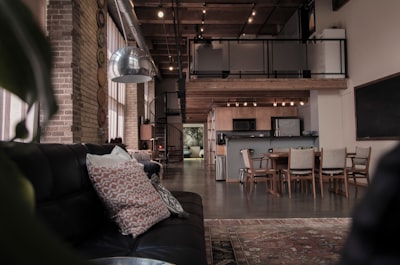
Buying a home can be a daunting and overwhelming experience. It's important to be prepared and have a solid understanding of the process in order to have a successful and stress-free experience. Here are some expert tips to help you confidently navigate the world of real estate and make the best decision for your future home.
First and foremost, it's crucial to know who your real estate agent represents in a property purchase. In some cases, a realtor may represent both the buyer and the seller, which can create a conflict of interest. Make sure you know exactly who is representing whom in the deal to ensure your interests are being protected.
One common mistake that buyers make is falling in love with the decor of a home during a showing or open house. It's important to remember that you are purchasing the home for its structure, layout, and design, not for the furnishings. Try to look past the current decor and envision the potential of the space.
If you are considering a home that is on the short sale market, be cautious. These types of transactions involve multiple parties and can easily go wrong. Be prepared for the possibility of losing the home, even if you think you have won it at auction.
Before making an offer on a home, thoroughly research the property and the surrounding area. Look for any past occurrences of natural disasters, such as tornadoes, forest fires, or flooding. This can give you an idea of any potential damage to the home and help you make an informed decision.
It's also important to thoroughly check the neighborhood for any potential red flags. Look into the crime rate and research if there are any registered sex offenders in the area. This information can significantly impact the value of the home and your overall satisfaction with the location.
If you are buying or selling a home, it's a good idea to have both parties compare inspection results. There may be discrepancies between the two, and it's important for both parties to be aware of any potential problems with the home. This can help avoid any surprises or conflicts down the road.
Before finalizing a purchase, be sure to thoroughly inspect the home for any issues. If possible, try to negotiate with the seller to have any necessary repairs or renovations completed before closing. This can save you time and money in the long run, especially if you are planning on flipping the home.
If you are considering a home that needs significant renovation or repairs, it's a good idea to bring along a contractor to the viewing. A professional contractor may be able to spot hidden defects that the average homeowner may miss. They can also provide a ballpark estimate for the cost of renovations, helping you make an informed decision.
When preparing to buy a home, start saving the amount you would be paying for your mortgage, minus your current rent. This will help you become more comfortable with a higher monthly housing payment and also contribute towards your down payment. Once you have saved at least ten percent of the cost of the home, you will be ready to make a purchase.
In conclusion, buying a home requires thorough research and preparation. Don't leave things to chance or hope for the best. By following these expert tips and carefully considering your options, you can confidently navigate the world of real estate and make a sound investment for your future.

